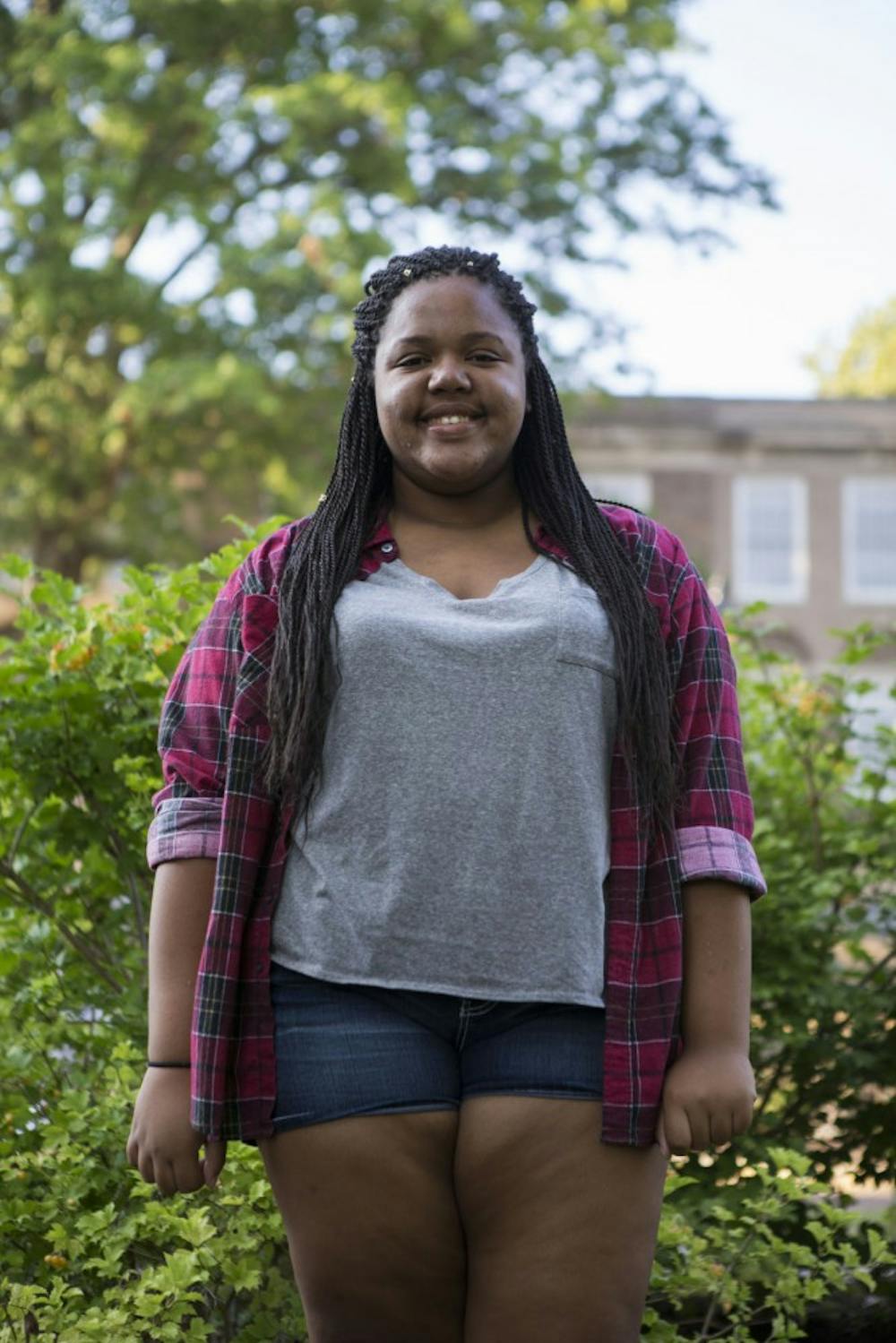Columnist Haadiza Ogwude writes about the importance of discussing the experiences of black trans women, especially in light of the recent murders of Veronica Banks Cano and Maya Young.
With Black History Month coming to a close and Women’s History Month beginning in March, I decided to write about a topic that is extremely important but seldom discussed. When talking about black people and talking about women, we rarely talk about black transgender women. That must end, as their experiences and struggles are imperative in both communities.
After the recent deaths of two black trans women — Veronica Banks Cano from San Antonio, who was found dead in her hotel room, and Maya Young, who was pronounced dead after being stabbed several times in Philadelphia — I felt compelled to speak out about the injustices black transgender women face.
The deaths of those two women is truly a tragedy, but unfortunately their deaths are not the first, nor will they be the last time that atrocities like them will happen in the United States. The National Coalition of Anti-Violence Programs documented at least 18 homicides of LGBT and HIV-affected people in 2013. Two-thirds of those victims were transgender women of color. The coalition found that transgender women were the most likely group to experience police discrimination, harassment and sexual violence. Sixteen of the at least 20 LGBT people murdered in 2014 were people of color. 11 were transgender women, 10 of whom were transgender women of color.
Mey, a writer for Autostraddle.com, discussed the experience of black transgender women in this country in her recent article about Veronica Banks Cano and Maya Young. She talks about how black lives are treated in American society and how that puts black trans women at special risk for violence.
“When a person lives at the intersection of womanhood, transness and Blackness, society gives a lot of reasons why she deserves to be attacked,” Mey wrote.
She also discussed the helplessness that she feels as a trans woman of color for both herself and her fellow trans women of color who are not easily white-passing and face more violence.
I believe that we have a huge problem with intersectionality in our society. It is hard for many people in this country to understand racism, sexism or transphobia when that is the only topic being discussed. However, when you mix all of those together, it becomes even more difficult for people to understand. That is especially true for black trans women and all trans women of color. Their experiences and oppression are being ignored by mainstream society.
The 2011 National Transgender Discrimination Survey argues that even though the trans community is more visible than ever, that visibility hasn’t solved barriers the community disproportionately faces. Those barriers include extreme poverty, job discrimination and police harassment, all of which likely contribute to the disproportionate violence against that group.
With anti-black violence reaching great heights in this country, a wide range of movements, including the Black Lives Matter movement, have formed to combat the deaths of black men and women. However, the deaths of black transgender women have gone unrecognized in many of those movements.
{{tncms-asset app="editorial" id="78536c34-d658-11e5-a56f-9b8c60d48e13"}}
I think it is crucial that we as a black community recognize the violence against black trans women as a part of the larger violence done to our community. We must rally and protest against that violence. We must give trans women a platform to discuss their experiences. I also believe we need more trans women and cis women in leadership positions in our movements. The experiences of those groups of people are very different from one another and very different from the experience of black cis and trans men. However, all of those experiences make up the black community. They are the experiences that bring us together. They are the experiences that affect our history and our culture.
Lourdes Ashley Hunter, who serves as executive director of the Trans Women of Color Collective, said in an interview with The Root that cis black people must be aware of their privilege. She also stated that transgender women and all black people have to be proactive in uplifting transgender women. Transphobia can not exist in fighting against anti-blackness.
In our black communities, whether we are cisgender or transgender, we must recognize that we are still black and that the violence against us is rampant in all intersections. We must come together as black people, as the thing that joins us together, and fight against the oppression and violence done in our community.
This country as a whole also needs to face the harsh reality of the rampant anti-blackness and transphobia that is prevalent in our society. Everyone must realize the simple micro-aggressions they commit every day against those groups of people, as well as the institutional, social and economic disadvantage that plagues those communities.
Haadiza Ogwude is a sophomore studying journalism. Did you hear about the recent deaths of Cano and Young? Tweet Haadiza @AdoreHaadiza or email her at ho299413@ohio.edu.






